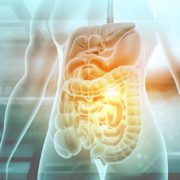8 Steps to a Healthier Gut
Once upon a time it was thought that the health of our gut was only dictated by what we ate and that any problems originating in the gut stayed in the gut. Fast forward to today where research has shown that those two ideas are almost completely inaccurate. We now know that factors other than what we eat can have a big impact on our digestive health. Furthermore, we also know that our digestive system is much more important and extensive than first thought.
Our gut microbiome is made up of trillions of tiny microorganisms whose role, apart from helping us digest food, is to help our body fight off infection and regulate hormone production. Yet it’s not only what we eat that can affect our microbiome. Other factors can play a role.
Additionally, research has found that our digestive system and brain are closely connected. Known as the gut-brain connection, it is the link that our feelings and emotions have to our digestive system.
So, what does all this mean for your digestive health? It means that our gut health can be improved by certain nutritional choices that we make alongside other lifestyle factors. Furthermore, it also highlights the importance of considering gut health in conjunction with emotional or mental health.
Gut problems run the range from minor tummy aches and pains to more serious issues like Crohn’s disease or ulcerative colitis. Gut problems can also include intestinal permeability or “leaky gut” a condition which allows toxins to enter the bloodstream. In all cases, the principles of keeping our gut happy and healthy still apply. This involves eating the right foods (i.e., gut-friendly foods) and taking a few steps to ensure that we’re trying to keep our microbiome in balance. When balance is restored, some common digestive symptoms may resolve.
Restoring gut balance
1. Increase your fiber intake
A simple but effective step. Nutrition experts say adults should consume at least 25 grams of fiber each day for regulating digestion (it’s thought that most Americans eat only 16 grams a day on average!). Fiber also acts as a prebiotic, serving as a food source for many strains of beneficial gut bacteria. Apples, avocados, bananas, potatoes, lentils, and oats are just a few examples of fiber-rich foods.
2. Consider gut-friendly diets: Low-FODMAP diet
Common diets for individuals with conditions like Irritable Bowel Syndrome (IBS) include the low-FODMAP diet, a specific carbohydrate exclusion diet. Those with IBS may experience symptoms such as cramping, diarrhea or bloating after consuming certain carbohydrates that are hard to digest; the low-FODMAP diet eliminates these carbohydrates. A 2017 study in the Journal Gastroenterology & Hepatology reviewed existing research and found that 50% to 86% of people with IBS responded well to a low-FODMAP diet.
However, before starting any gut-friendly diet, it is important to remember that diets like FODMAP come with mixed results. They work well for some individuals while having no impact on others. It is always advised to speak to a physician or nutritionist about any major changes to your diet.
3. Stay active
Regular exercise has positive effects on the gut microbiome. Whether it’s running, walking, yoga or going to the gym, any exercise is good. Recent studies suggest that exercise can enhance the number of good bacteria in the gut.
4. Add food diversity to your diet
A healthy microbiome is one that’s diverse. That means the microbiome is populated with a range of food items: asparagus, artichokes, radishes, leeks, and particularly fermented foods like: sauerkraut, kefir, kimchi and miso. A 2016 study in the Journal Molecular Metabolism notes that the more diverse the diet, the more diverse the microbiome and the more adaptable it will be to changes.
5. Dealing with stress? Consider cognitive behaviour therapy
The term “butterflies in your stomach” refers to having a nervous feeling in the stomach during certain situations. Although it’s not meant to be taken literally, there is a lot of truth to the statement as it links our feelings to digestion. Anger, anxiety, sadness — all of these feelings (and others) can trigger symptoms in the gut. This is where Cognitive Behavioral Therapy (CBT) might help. CBT is one of the most common forms of psychotherapy. It is a form of talk therapy that explores the way that your thoughts and emotions impact your behavior and health. The therapy can help teach relaxation to reduce stress, and promote relaxation which can in turn reduce gut symptoms.
6. Limit the amount of processed food you eat
Highly processed foods can throw the microbiome off balance. Replace canned foods, soft drinks and packaged snack foods with natural, whole foods.
7. Probiotics
Early studies have suggested that imbalances in intestinal bacteria can cause “arthritis, diarrhea, autoimmune illness, B12 deficiency, chronic fatigue syndrome.” Probiotics may help correct that imbalance. Probiotics are defined as live microorganisms that may have health benefits when consumed or applied to the body. While this is still an emerging field of study, researchers have found that certain strains of probiotics can help reduce inflammation in people with certain diseases. You can find probiotics in yogurt and fermented foods.
8. Cut back on NSAIDs.
Regular use of non-steroidal anti-inflammatory drugs medications (NSAIDs) such as Ibuprofen or Aspirin can cause a massive disruption of the gut flora. NSAIDs simultaneously reduce pain and prevent healing, and because the lining of the intestines is repaired and replaced every 3 to 5 days, the mechanism of NSAIDs dangerously interrupts and blocks that process.
Be kind to your gut and help take care of it with some of these simple steps. If you notice food intolerances or food-related symptoms that aren’t improving or getting worse with time, please give us a call to make an appointment with one of our providers.
We are here for you, and we want to help.
Our goal is to return you to optimal health as soon as possible. To schedule an appointment please call: 703-532-4892 x2
Reviewed on October 3, 2024.
References
- FODMAP Diet: What You Need to Know
https://www.hopkinsmedicine.org/health/wellness-and-prevention/fodmap-diet-what-you-need-to-know# - Low FODMAP Diet
https://my.clevelandclinic.org/health/treatments/22466-low-fodmap-diet - IBS? A low-FODMAP diet may help
https://www.health.harvard.edu/staying-healthy/ibs-a-low-fodmap-diet-may-help - Role of the gut microbiota in nutrition and health
https://www.bmj.com/content/361/bmj.k2179 - Nutrition and healthy eating
https://www.mayoclinic.org/healthy-lifestyle/nutrition-and-healthy-eating/in-depth/high-fiber-foods/art-20050948 - Exercise Modifies the Gut Microbiota with Positive Health Effects
https://www.ncbi.nlm.nih.gov/pmc/articles/PMC5357536/ - A healthy gastrointestinal microbiome is dependent on dietary diversity
https://www.ncbi.nlm.nih.gov/pmc/articles/PMC4837298/# - Intestinal permeability and inflammation in patients on NSAIDs
https://www.ncbi.nlm.nih.gov/pmc/articles/PMC1727292/



Leave a Reply
Want to join the discussion?Feel free to contribute!